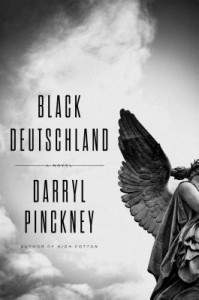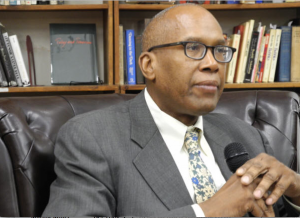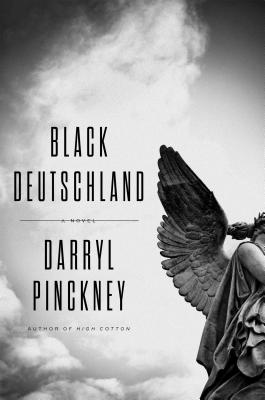 Black Deutschland
Black Deutschland
by Darryl Pinckney
Farrar, Straus & Giroux. 294 pages, $26.
THIS ENGAGING, highly literate second novel by Darryl Pinckney follows a young gay black man’s adventures in Berlin during the 1980s, the final decade of the Cold War. The novel’s narrator, Jed Goodfinch, originally from Chicago, struggles to make a life in Berlin. A recovering alcoholic and drug addict, he spends time at AA meetings, at a straight bar, and with his friends. He falls in love several times, once with a straight man, and works to maintain his job with a controversial architect.
The narrative switches back and forth between Jed’s experiences in Berlin and his memories of growing up in Chicago with a mother who was an activist and a father who worked for an African-American newspaper. His cousin Cello came to live with the family during this time and developed her musical talents under his mother’s guidance; their paths would cross again, years later, in Berlin. His mother was always fighting for various causes and bringing in recovering addicts to live with them. One of these women would later introduce him to drugs.

His time in Berlin is rather aimless and unsure. His relationship with Cello, now also living in Berlin, is difficult, especially with Jed’s history of addiction. He forms a crush on Manfred, an architect working for Jed’s employer, who’s straight and doesn’t return his affections. Jed’s hold on his job as a researcher and writer for the architect N. I. Rosen-Montag is rather precarious. For example, he learns that the lengthy text he wrote explaining Montag’s latest project can be reduced to photo captions.
His situation changes somewhat when he moves into a co-op. He makes friends with the elder statesperson, a cross-dressing, shoplifting World War II survivor. He has a relationship with Duallo, a handsome young man of French and Cameroonian descent. Yet even this presents difficulties, as Jed feels there are parts of his lover’s life he knows nothing about: “Even after he’d begun spending every night with me, I was not at ease about us.” He must also negotiate his way around the other residents’ political affiliations. The co-op runs a bookstore, and during one meeting the members discuss whether they should carry a title Jed feels is offensive towards gay black men, and he must defend his views against members who view the book as a classic work of political struggle.
Pinckney’s literary and cultural references are wide-ranging. His point of departure is of course Christopher Isherwood’s Berlin Diaries. On the very first page, Jed declares: “Berlin meant boys, Isherwood said.” He also mentions figures such as Frederick Douglass, W.E.B. Du Bois, and Rosa Luxemburg. He discusses events like the 1893 Chicago World’s Fair and the 1968 Democratic National Convention. Jed watches key events of the 80s from a TV at his favorite bar, such as the bombing of Pan Am Flight 103, Ayatollah Khomeini’s fatwa on Salman Rushdie, the crackdown at Tiananmen Square, and Rock Hudson’s illness. The end of the book finds him at the Berlin Wall as it’s beginning to be dismantled, and he helps the East Berliners celebrate their newfound freedom.
My one caveat about this fascinating novel would be that the jumps between Jed’s childhood and his life in Berlin can sometimes be confusing. However, they are a way of following Jed’s thought processes as he attempts to make sense of his past and figure out where he’s going. Pinckney explores race, sexuality, nationality, and the search for belonging to produce a novel with intellectual heft that is also a deeply moving personal journey.
________________________________________________________
Charles Green is a writer based in Annapolis, Maryland.






